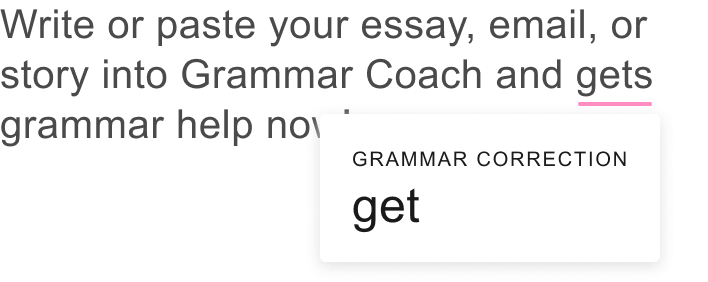Meaning of All Art Is at Once Surface and Symbol
[ stressed thursdayee; unstressed before a consonant thursday uh; unstressed earlier a vowel thursdayee ]
/ stressed ði; unstressed before a consonant ðə; unstressed earlier a vowel ði /
- New Word Listing
definite article
(used, especially earlier a noun, with a specifying or particularizing effect, as opposed to the indefinite or generalizing strength of the indefinite commodity a or an): the book you gave me; Come up into the house.
(used to mark a proper noun, natural phenomenon, transport, edifice, fourth dimension, point of the compass, co-operative of endeavor, or field of study as something well-known or unique): the lord's day; the Alps; the Queen Elizabeth; the past; the West.
(used with or as function of a title): the Duke of Wellington; the Reverend John Smith.
(used to marker a noun as indicating the all-time-known, virtually approved, most important, most satisfying, etc.): the skiing center of the U.S.; If you're going to work hard, now is the time.
(used to mark a noun as being used generically): The domestic dog is a quadruped.
(used in place of a possessive pronoun, to annotation a part of the trunk or a personal belonging): He won't exist able to play football until the leg mends.
QUIZ
QUIZ YOURSELF ON "ITS" VS. "Information technology'S"!
Apostrophes can be catchy; prove you know the difference between "it's" and "its" in this crafty quiz!
On the farm, the feed for chicks is significantly dissimilar from the roosters'; ______ not even comparable.

Origin of the
1
First recorded before 900; Middle English language, Old English, uninflected stem of the demonstrative pronoun; see origin at that
how to pronounce the
As shown to a higher place, the pronunciation of the definite commodity the changes, primarily depending on whether the following sound is a consonant or a vowel. Earlier a consonant sound the pronunciation is [th uh]: /ðə/: the book, the mountain [th uh-book, th uh-moun-tn]. /ðə bɒɒk, ðəˈmaʊn tn/. Before a vowel audio information technology is usually [thursdayee], /ði/, sometimes [thursdayi]: /ðɪ/: the apple, the finish [thee or thi-ap-uhl, thee or thi-end]. /ði or ðɪˈæp əl, ði or ðɪ ɛnd/. As an emphatic grade ("I didn't say a book—I said the book.") or a citation form ("The discussion the is a definite article."), the usual pronunciation is [thee], /ði/, although in both of these uses of the stressed class, [thee] /ði/ is often replaced past [thuh], /ðʌ/, especially among younger speakers.
Words nearby the
Thaxter, Thayer, Th.B., THC, Th.D., the, Thea, theaceous, Admirable Crichton, The, Age of Innocence, The, Alchemist, The
Other definitions for the (2 of iii)
the 2
[ before a consonant th uh; before a vowel thee ]
/ before a consonant ðə; before a vowel ði /
adverb
(used to change an adjective or adverb in the comparative degree and to signify "in or past that," "on that account," "in or by so much," or "in some or any degree"): He'southward been on holiday and looks the better for it.
(used in correlative constructions to modify an adjective or adverb in the comparative caste, in one case with relative force and in the other with demonstrative strength, and signifying "by how much … by then much" or "in what degree … in that degree"): the more the merrier; The bigger they are, the harder they fall.
Origin of the
2
Commencement recorded before 900; Middle English language; Erstwhile English thē, thȳ, instrumental instance of demonstrative pronoun; run into origin at that, lest
Other definitions for the (3 of three)
variant of theo- before a vowel: thearchy.
Dictionary.com Unabridged Based on the Random House Unabridged Lexicon, © Random House, Inc. 2022
How to use the in a judgement
British Dictionary definitions for the (1 of 3)
the 1
/ (stressed or emphatic ðiː, unstressed earlier a consonant ðə, unstressed before a vowel ðɪ) /
determiner (commodity)
used preceding a noun that has been previously specified the pain should disappear soon; the homo then opened the door Compare a 1
used with a qualifying word or phrase to indicate a item person, object, etc, every bit distinct from others enquire the man standing outside; give me the blueish one Compare a 1
used preceding certain nouns associated with 1's culture, gild, or community to go to the doctor; listen to the news; watch the television
used preceding present participles and adjectives when they function as nouns the singing is awful; the dead salute you
used preceding titles and sure uniquely specific or proper nouns, such as place names the United States; the Honourable Edward Brown; the Chairman; the moon
used preceding a qualifying adjective or noun in certain names or titles William the Conqueror; Edward the Starting time
Word Origin for the
Center English, from Old English thē, a demonstrative adjective that afterwards superseded sē (masculine singular) and sēo, sio (feminine singular); related to Old Western frisian thi, thiu, Old Loftier High german der, diu
British Dictionary definitions for the (ii of 3)
adverb
(often foll by for) used earlier comparative adjectives or adverbs for accent she looks the happier for her trip
used correlatively earlier each of ii comparative adjectives or adverbs to betoken equality the sooner you come, the meliorate; the more I run into you, the more I love you
Give-and-take Origin for the
Old English thī, thӯ, instrumental case of the 1 and that; related to Quondam Norse thī, Gothic thei
British Dictionary definitions for the (3 of iii)
Collins English Dictionary - Complete & Unabridged 2012 Digital Edition © William Collins Sons & Co. Ltd. 1979, 1986 © HarperCollins Publishers 1998, 2000, 2003, 2005, 2006, 2007, 2009, 2012
Source: https://www.dictionary.com/browse/the
0 Response to "Meaning of All Art Is at Once Surface and Symbol"
Post a Comment